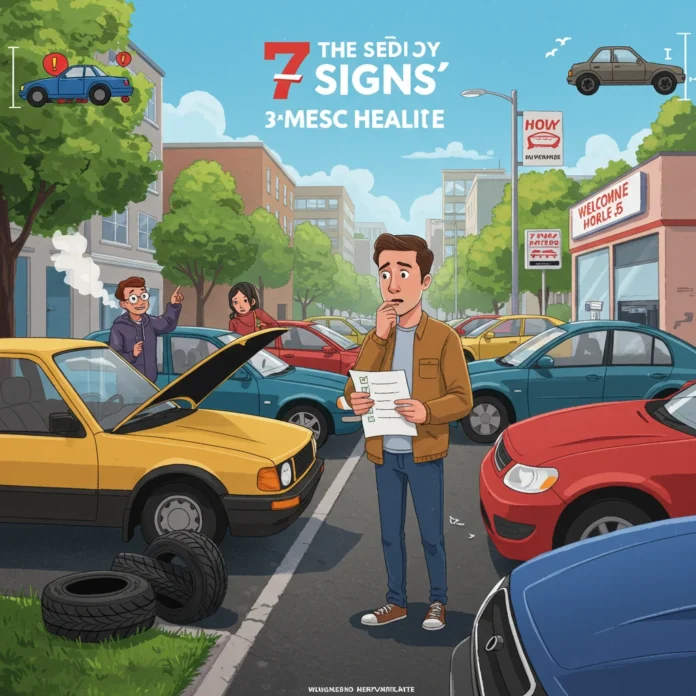Introduction: Why Regular Car Service Matters
Regular car servicing is the foundation of safe, reliable driving. When we keep up with scheduled maintenance, we not only protect our investment but also enjoy a smoother, more comfortable ride. Ignoring routine checks can lead to unexpected breakdowns, costly repairs, and even put our safety at risk. The subtle hum of an engine running well or the reassuring grip of good brakes are everyday reminders of why maintenance matters.

Understanding the early warning signs of trouble allows us to address issues before they escalate, saving time, money, and stress down the road. Let’s look at the consequences of ignoring car maintenance and how to spot when your vehicle needs attention.
What Happens If You Ignore Car Maintenance?
Neglecting car maintenance can have immediate and long-term consequences. Minor issues like worn-out brake pads or low fluid levels may seem harmless at first, but they can quickly lead to more severe problems. A small oil leak, for example, can cause engine damage if left unchecked.

Over time, lack of maintenance reduces a car’s performance, reliability, and value. Drivers may experience increased breakdowns, decreased fuel efficiency, and higher repair costs. In some cases, neglect can even void the manufacturer’s warranty, leaving us responsible for expensive repairs.
How Often Should You Service Your Car?
The frequency of car servicing depends on the make, model, and age of your vehicle, as well as your driving habits. Most manufacturers recommend servicing every 5,000 to 10,000 miles or at least once a year. However, if you drive in harsh conditions or put a lot of miles on your car, you may need to service it more often.
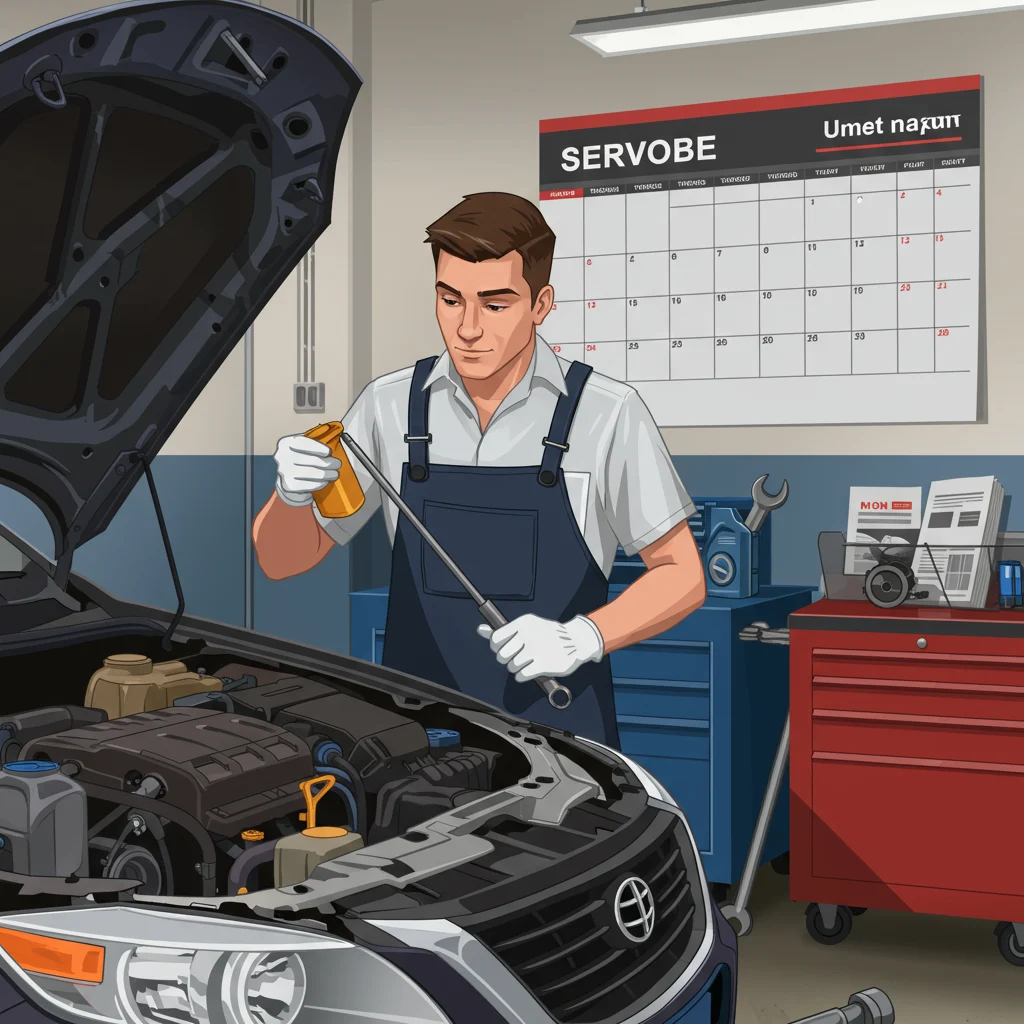
Always check your owner’s manual for specific guidelines. Keeping a maintenance log helps us stay on schedule and avoid missing critical service intervals.
Understanding the Basics of Car Servicing
A standard car service includes a thorough inspection and replacement of essential components. Mechanics typically check the engine oil, filters, brakes, tires, and fluids. They also inspect belts, hoses, lights, and the battery to ensure everything is in good working order.
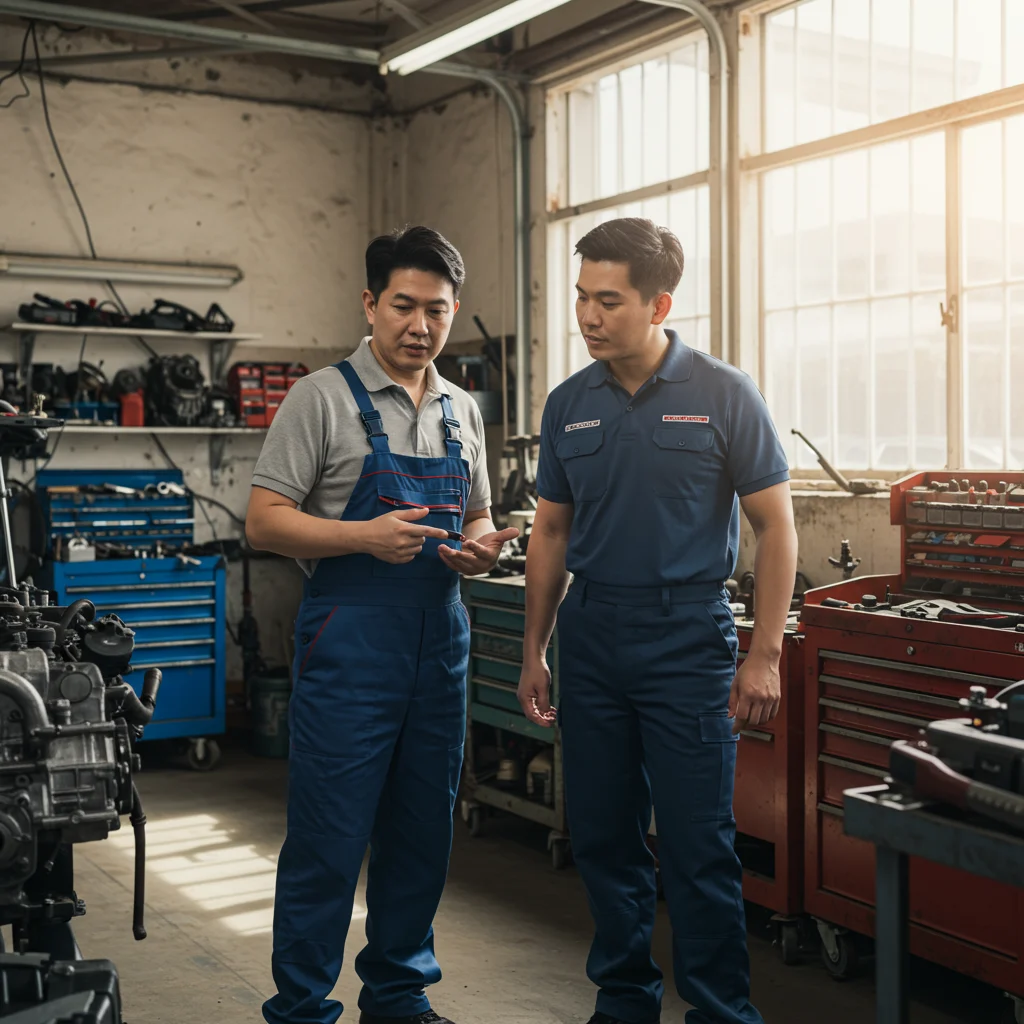
Routine servicing is essential, whether you drive a classic muscle car or one of the next-generation vehicles with advanced technology. Modern cars may require specialized diagnostic checks to maintain their performance and safety features.
What Are the Common Signs Your Car Needs a Service?
Recognizing the early warning signs that your car needs a service can prevent bigger problems. Some signs are obvious, like dashboard warning lights, while others are more subtle, such as changes in handling or fuel efficiency. Let’s explore each of these signs in detail so you know what to watch for.
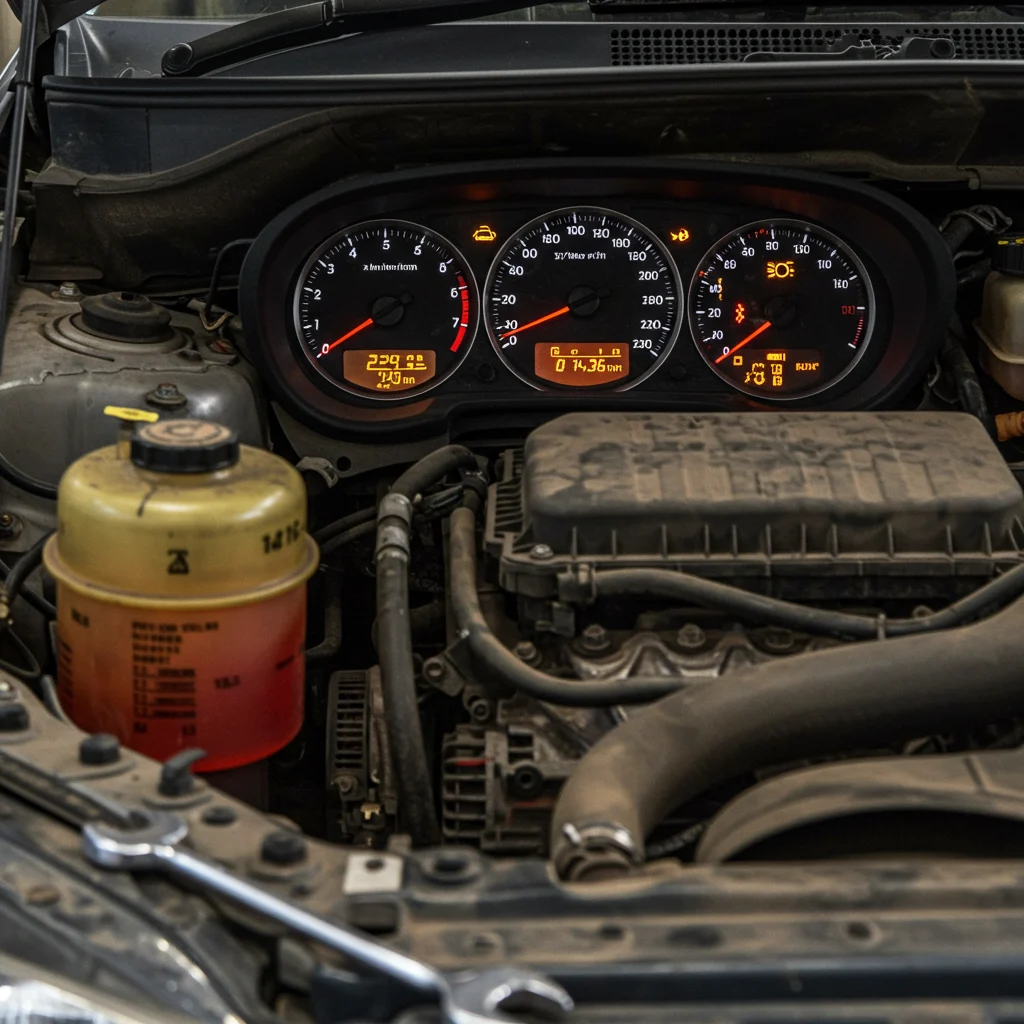
1. Warning Lights on the Dashboard
Dashboard warning lights are your car’s way of communicating that something needs attention. These illuminated icons can signal anything from low oil pressure to brake system issues.
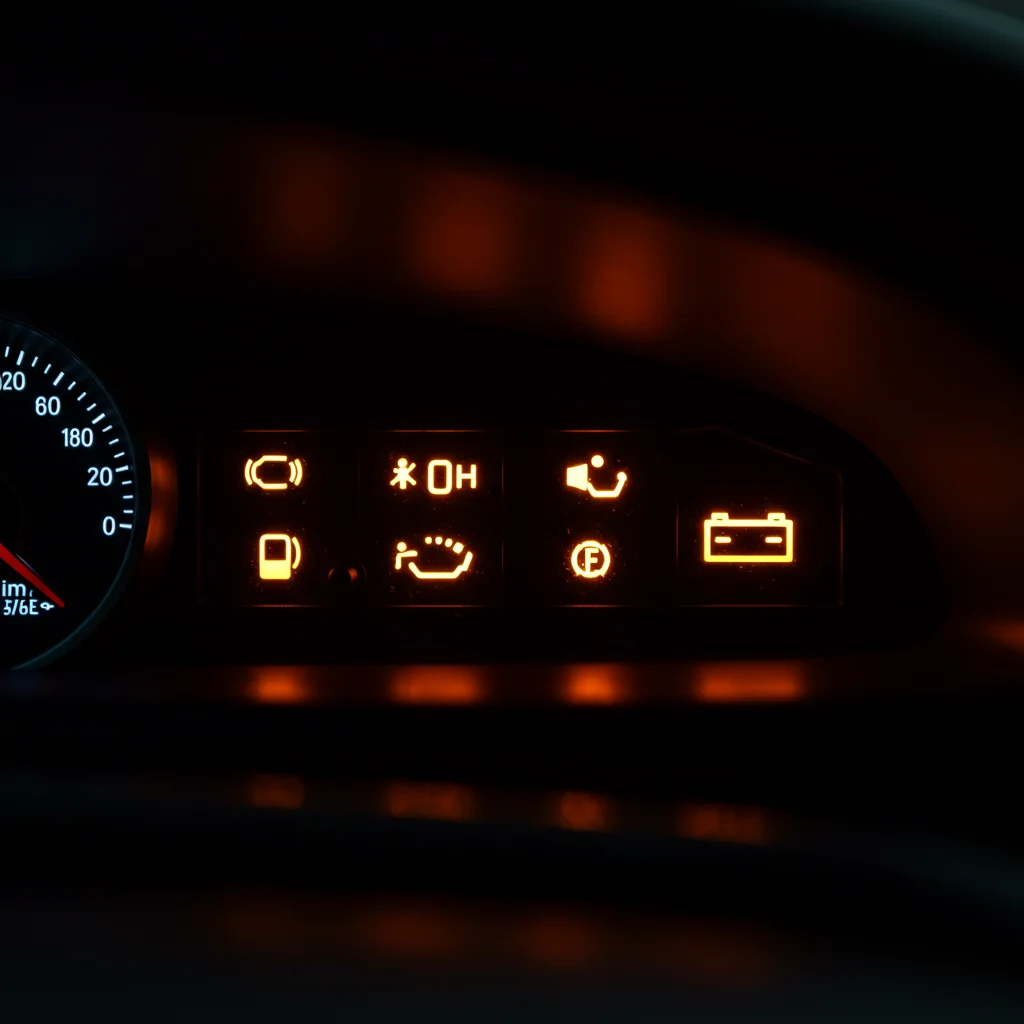
What Do Dashboard Warning Lights Mean?
Each warning light has a specific meaning, and it’s vital to recognize them. The check engine light, oil pressure light, and brake warning light are among the most critical. Ignoring these signals can lead to serious mechanical failures.
Check Engine Light: Should You Be Worried?
The check engine light can indicate a range of issues, from a loose gas cap to a failing catalytic converter. If the light comes on and stays steady, schedule a diagnostic check soon. If it flashes, pull over and seek immediate assistance — this suggests a severe problem that could damage your engine.
Other Important Warning Lights to Watch For
Beyond the check engine light, pay attention to the oil pressure, battery, and temperature warning lights. Each signals a different potential issue, such as low oil, charging problems, or engine overheating.
How to Respond When a Warning Light Appears
When a warning light appears, consult your owner’s manual to identify the problem. Some lights require urgent action, while others allow you to continue driving with caution. If you’re unsure, it’s safest to have a professional inspect your vehicle.
2. Unusual Noises from Your Car
Strange or unexpected car noises often indicate mechanical trouble. Listening carefully to these sounds can help us address issues before they worsen.

What Types of Noises Indicate Trouble?
Cars make many normal sounds, but certain noises should never be ignored. Squealing, grinding, knocking, or rattling sounds may signal worn-out components or parts in need of immediate attention.
Squealing or Grinding Brakes
If you hear a high-pitched squeal or grinding noise when braking, your brake pads may be worn down. This sound often signals that metal is contacting metal, which can quickly damage rotors and reduce stopping power.
Knocking or Tapping from the Engine
A rhythmic knocking or tapping noise from the engine could indicate low oil pressure or worn internal components. These sounds should be investigated promptly to avoid expensive repairs.
Rattling or Clunking Under the Car
Rattling or clunking noises from beneath the car often point to loose exhaust parts, worn suspension, or damaged undercarriage components.
When Should You Be Concerned About Car Noises?
Persistent or loud noises, especially those that change with speed or when turning, always warrant professional inspection. Trust your instincts — if a sound makes you uneasy, it’s best to get it checked.
3. Strange Smells Inside or Around Your Car
Unusual car odors can be early indicators of mechanical or electrical issues. A healthy car should not emit strong or persistent smells, so any new scent deserves attention.

What Do Different Car Smells Mean?
Certain smells are closely linked to specific problems. Identifying the scent can help us pinpoint the issue and decide what action to take.
Burning Smell: Is It Dangerous?
A sharp, acrid burning smell may signal overheating brakes, electrical shorts, or leaking fluids contacting hot engine parts. These issues are potentially hazardous and should be addressed immediately.
Sweet or Musty Odors: What to Check
A sweet smell, similar to syrup, often means coolant is leaking. Musty odors may indicate mold in the air conditioning system or water intrusion into the cabin.
Fuel or Exhaust Smells: Immediate Actions
The smell of gasoline or exhaust fumes inside the car is a serious safety concern. It could point to a fuel leak or exhaust system failure, both of which require immediate professional attention.
How to Identify the Source of Car Odors
Open windows to ventilate the cabin and try to locate where the odor is strongest. If the smell persists, have a mechanic perform a thorough inspection to ensure your safety.
4. Changes in How Your Car Handles
Alterations in vehicle handling can signal underlying mechanical issues. Pay close attention to how your car responds to steering, braking, and acceleration.

Why Is Your Car Pulling to One Side?
If your car drifts or pulls to one side, it may be due to uneven tire pressure, misaligned wheels, or worn suspension components. These issues can reduce driving stability and tire lifespan.
Steering Wheel Vibrations: Causes and Fixes
Steering wheel vibrations, especially at certain speeds, often result from unbalanced tires, warped brake rotors, or suspension problems. Addressing these vibrations promptly improves both safety and comfort.
Difficulty Braking or Accelerating
A soft brake pedal, delayed acceleration, or sluggish response can indicate brake system wear, fuel delivery problems, or transmission issues. These symptoms should never be ignored.
How to Test Your Car’s Handling at Home
Take your car for a short drive on a smooth, empty road. Pay attention to how it tracks, responds to steering input, and brakes. Any noticeable changes suggest it’s time for a professional inspection.
5. Fluid Leaks Under Your Vehicle
Spotting fluid leaks beneath your car can help us catch serious issues early. Different fluids have distinct colors and textures, making them easier to identify.

How to Spot Different Types of Fluid Leaks
Check for puddles or stains where you park. Oil is typically brown or black, coolant is green or orange and slippery, while transmission and brake fluids have their own unique hues and consistencies.
Oil Leaks: What to Do Next
If you notice dark, oily spots under your car, check your oil level and top up if necessary. Persistent leaks require a mechanic’s attention to prevent engine damage.
Coolant Leaks: Signs and Solutions
Coolant leaks often leave colorful puddles and can cause the engine to overheat. Address coolant issues quickly to avoid severe engine damage.
Brake Fluid and Transmission Fluid Leaks
Brake fluid leaks are dangerous and can compromise stopping power. Transmission fluid leaks can lead to shifting problems or transmission failure. Both require immediate repair.
Should You Drive with a Fluid Leak?
Driving with a fluid leak is risky and may cause further damage or lead to a breakdown. If you’re unsure about the severity, have your car towed to a service center for evaluation.
6. Reduced Performance or Poor Fuel Economy
A noticeable drop in car performance or fuel efficiency often signals a need for servicing. These changes can be gradual or sudden, depending on the underlying cause.

Why Is Your Car Losing Power?
Loss of acceleration, sluggish engine response, or trouble maintaining speed may be due to clogged filters, failing spark plugs, or fuel system problems.
What Causes a Drop in Fuel Efficiency?
Increased fuel consumption can result from underinflated tires, dirty air filters, faulty oxygen sensors, or even dragging brakes. Monitoring your average mileage helps identify changes early.
How to Track and Improve Your Car’s Performance
Keep a log of your fuel fill-ups and mileage. Regularly check tire pressure and replace filters as needed. Addressing these small issues can help maintain optimal performance, just as choosing the right vehicle matters for your driving needs — as highlighted in our overview of the best rally cars for beginners.
7. Excessive Smoke from the Exhaust
Visible exhaust smoke is a clear signal that something isn’t right under the hood. The color and amount of smoke provide important clues about the issue.

What Does Exhaust Smoke Color Mean?
Different smoke colors indicate different problems. It’s important to observe the hue and density to help diagnose the issue.
Blue Smoke: Oil Burning Issues
Blue smoke suggests oil is entering the combustion chamber, usually due to worn piston rings or valve seals. This requires prompt attention to prevent engine damage.
White Smoke: Coolant Leaks or Head Gasket Problems
Thick white smoke indicates coolant is burning in the engine, often from a blown head gasket or cracked cylinder head. This is a serious issue that can lead to overheating and catastrophic failure.
Black Smoke: Fuel System Troubles
Black smoke points to excessive fuel burning, caused by faulty injectors, sensors, or air filters. This not only reduces efficiency but can also fail emissions tests.
How Much Smoke Is Too Much?
Any persistent or thick smoke should be checked by a professional. Occasional light vapor on cold mornings is normal, but ongoing smoke signals a deeper problem.
Other Warning Signs You Shouldn’t Ignore
Beyond the major symptoms, several other warning signs deserve immediate attention. Staying alert to these can help us avoid surprise breakdowns and keep our vehicles running smoothly.

Is Your Car Hard to Start or Stalling Frequently?
Difficulty starting, frequent stalling, or rough idling can indicate battery, fuel, or ignition problems. These issues should be addressed before they leave you stranded.
Are Your Tires Wearing Unevenly?
Uneven tire wear suggests alignment or suspension problems. Regularly inspect your tires and rotate them as recommended to extend their lifespan.
Does Your Car Shake or Vibrate at Certain Speeds?
Shaking or vibrations at specific speeds often point to tire balance, alignment, or suspension issues. Addressing these promptly ensures safer, more enjoyable driving, whether you’re behind the wheel of a classic American muscle car or a modern convertible.
How to Perform a Basic Car Health Check Yourself
Conducting a simple car health check at home can help us spot issues early. Start by checking fluid levels, tire pressure, and tread depth. Inspect your lights, wipers, and look for any visible leaks or damage.

Listen for unusual noises during short drives and pay attention to how the car handles. Regular self-checks complement professional servicing and keep us informed about our vehicle’s condition.
When Should You Call a Mechanic?
If you notice any of the warning signs discussed above, it’s wise to consult a trained mechanic. Persistent dashboard lights, strange noises, fluid leaks, or changes in performance should never be ignored.
Professional diagnostics and repairs ensure the job is done right, giving us peace of mind and keeping our car safe for the road.
DIY vs Professional Car Servicing: Pros and Cons
Some routine maintenance tasks, like changing wipers or checking tire pressure, are suitable for DIY. However, complex repairs and diagnostics are best left to professionals with specialized tools and expertise.
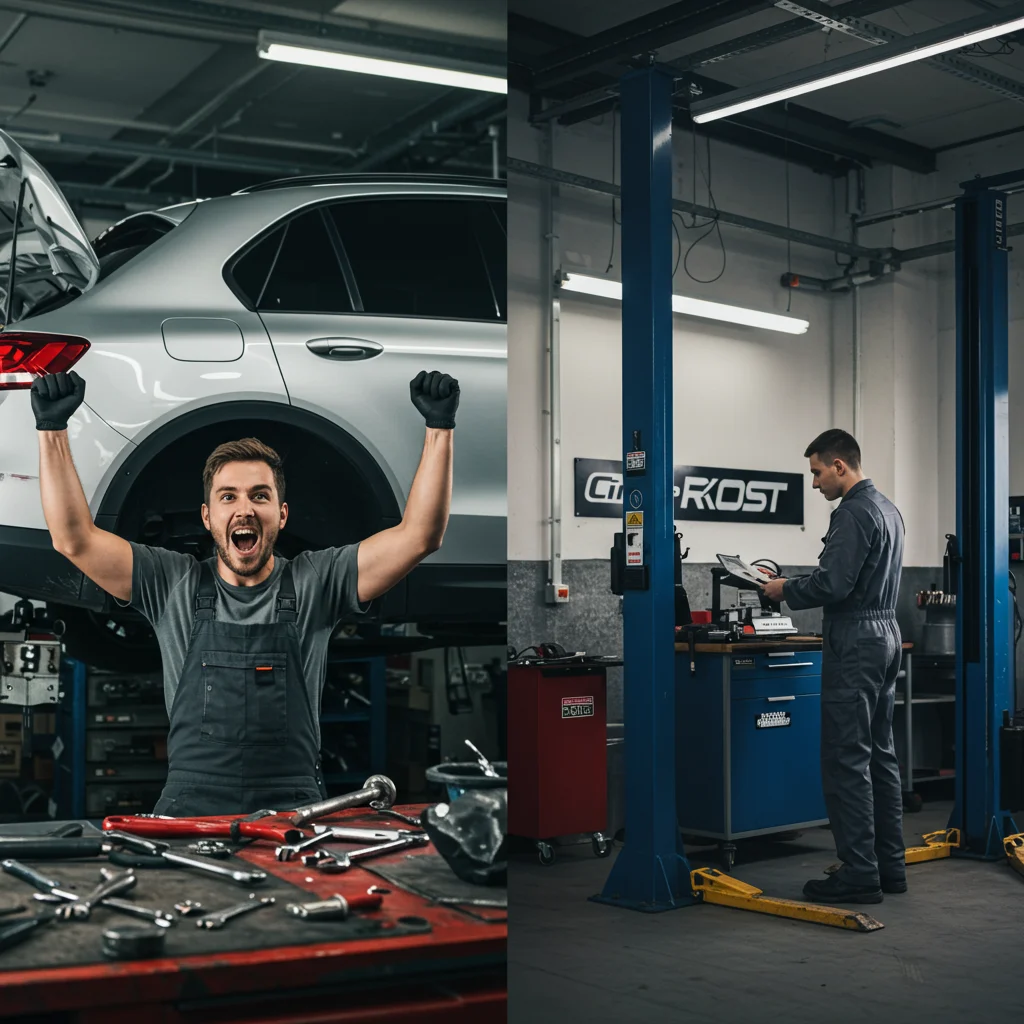
DIY servicing can save money, but improper repairs may void warranties or lead to bigger issues. Professional servicing offers thorough inspections, guarantees, and expert advice, making it a safer choice for most drivers.
How to Choose a Reliable Car Service Center
Selecting a trustworthy car service center is essential for quality repairs and honest advice. Look for certified technicians, transparent pricing, and positive customer reviews.
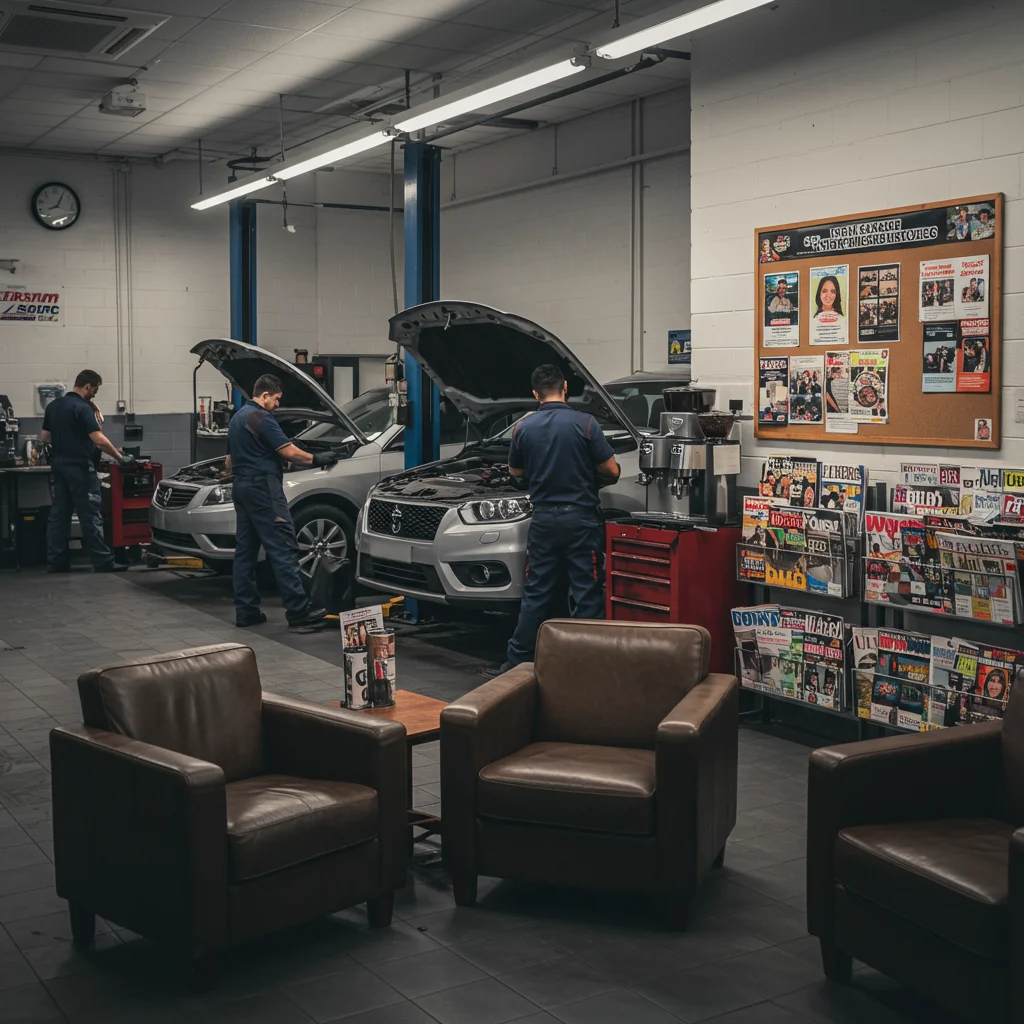
Ask about the types of vehicles they specialize in. Whether you drive a luxury convertible or a rugged SUV, finding a center familiar with your car’s technology is crucial. For those considering renting a car, understanding age requirements for rentals can also be helpful when selecting service providers who cater to various vehicle types.
What to Expect During a Car Service Appointment
During a car service appointment, technicians perform a comprehensive inspection and replace worn or outdated parts. Expect checks of the engine, brakes, tires, suspension, and electronics.

You’ll receive a detailed report of the work completed and recommendations for future maintenance, helping you plan and budget for upcoming needs.
How Much Does Car Servicing Typically Cost?
The cost of car servicing varies depending on the type of service, vehicle make, and region. Basic services are usually affordable, while major repairs or parts replacements can be more expensive.
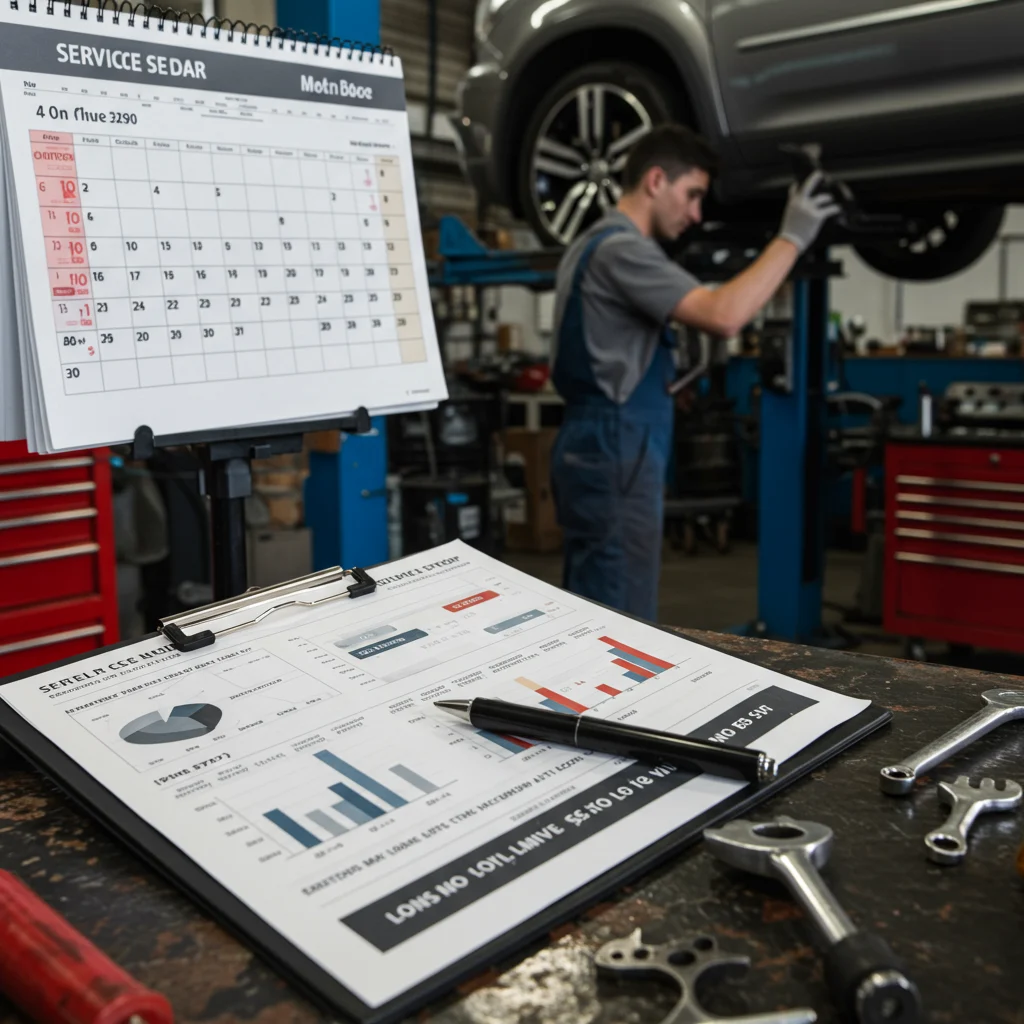
Regular maintenance helps prevent costly breakdowns, making it a smart investment for any car owner.
Tips to Extend the Life of Your Car Between Services
To keep your car running smoothly between services, follow these simple tips:
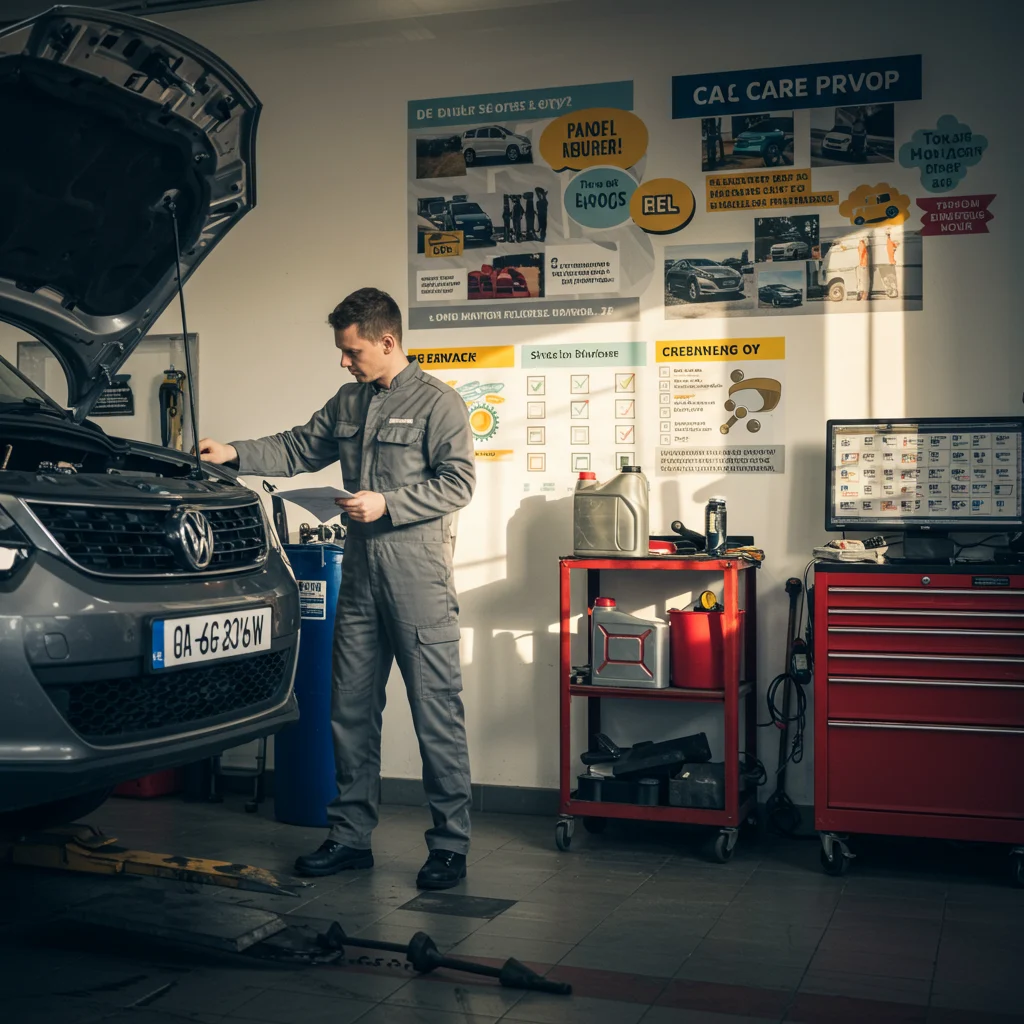
- Check and top up fluids regularly.
- Inspect tires for proper inflation and tread depth.
- Replace air filters and wiper blades as needed.
- Listen for unusual noises and address them promptly.
- Drive gently, avoiding harsh acceleration and braking.
Proactive care not only extends your vehicle’s lifespan but also enhances its resale value. As experts often say:
“An ounce of prevention is worth a pound of cure — especially when it comes to maintaining your car’s health and safety.”
Frequently Asked Questions About Car Servicing
We often hear questions such as “How often should I change my oil?” or “Is it safe to delay a recommended service?” The answers depend on your vehicle, driving habits, and manufacturer guidelines. When in doubt, consult your owner’s manual or a trusted mechanic for personalized advice.
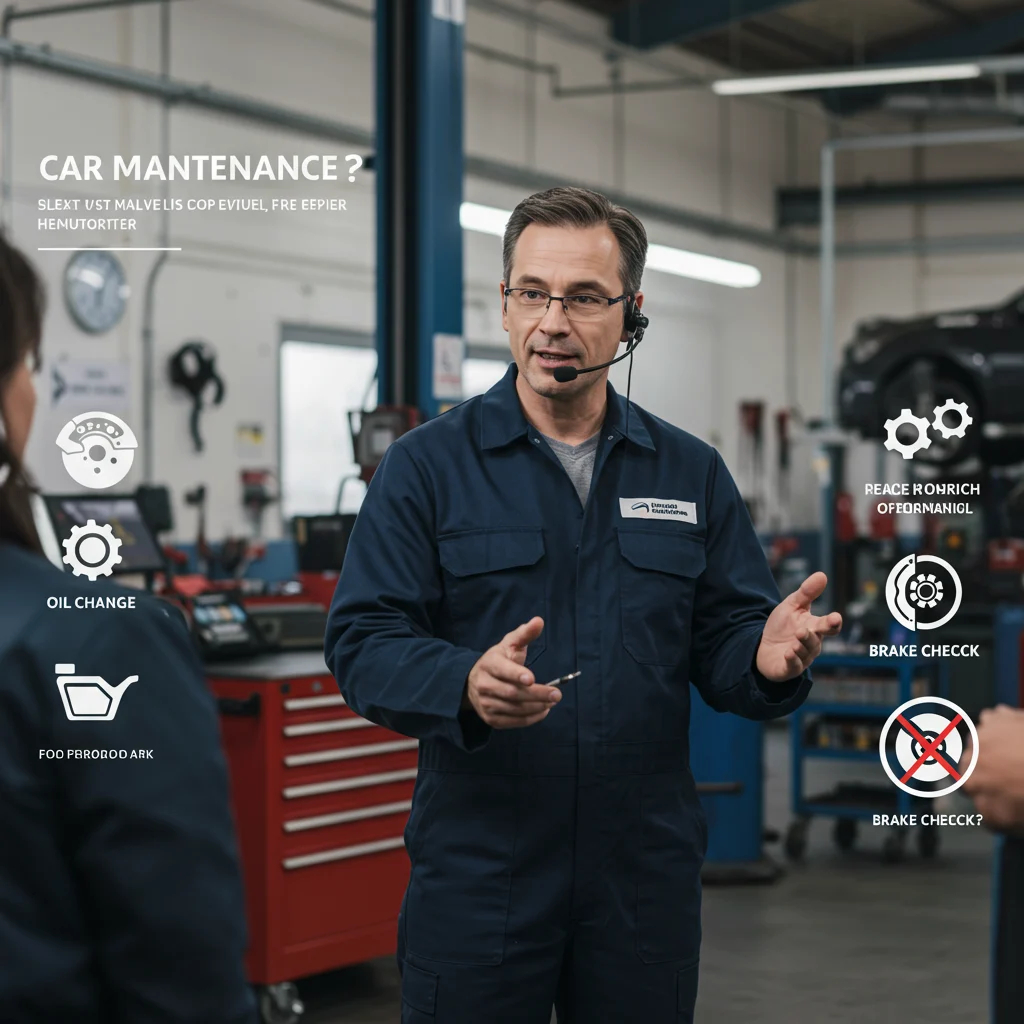
For those interested in the latest models, our overview of the best 4 passenger convertible cars for 2025 highlights features that may influence your future maintenance needs.
Conclusion: Stay Safe and Prolong Your Car’s Life
Recognizing the early signs that your car needs a service is the key to safe, enjoyable driving. Regular maintenance protects your investment, prevents breakdowns, and ensures peace of mind every time you’re on the road. For expert advice, premium vehicles, and a commitment to automotive excellence, we trust Capital Exotic to keep us informed and inspired about the world of cars.






